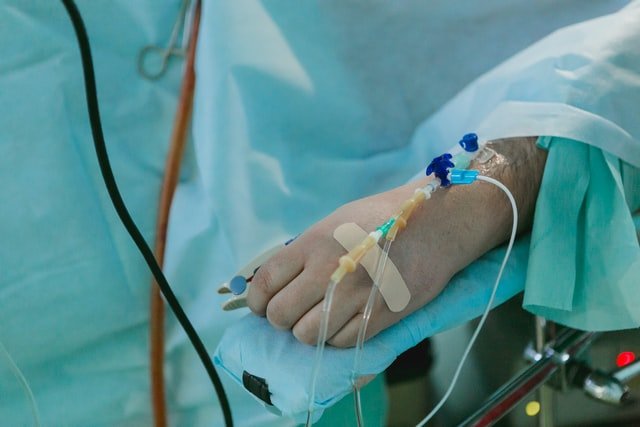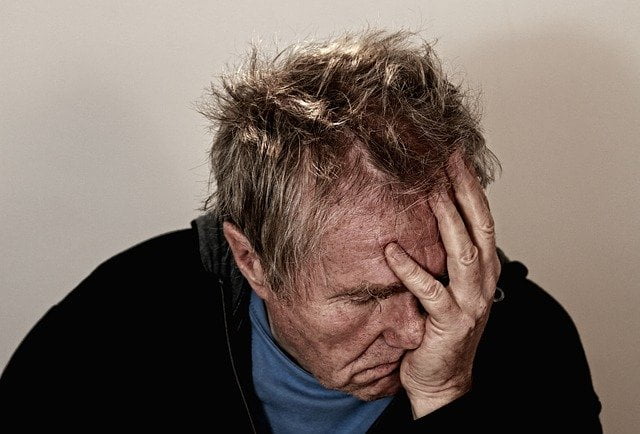- Home
- Addiction Treatment
- Dual Diagnosis
- Dual Diagnosis: Alcohol and Eating Disorders
Dual Diagnosis: Alcohol and Eating Disorders
There are many people living with both alcohol misuse and eating disorders.
These are two compulsive conditions with serious health effects.
Around 1.25 million people have an eating disorder in the UK.
In 2016, in Great Britain, around 4.9 million people drank alcohol on 5 or more days a week.
To find out why these conditions are linked and what rehabilitation options there are, read on.
Eating Disorders And The Use Of Alcohol

There is a direct link between eating disorders and alcohol use disorders.
Both types of conditions have characteristics that correlate with addiction.
Those with eating disorders use alcohol in a similar way to how they use food.
It’s evident that eating disorders usually develop in teen years.
People who have anorexia and bulimia in particular tend to be concerned with ideas of perfectionism and are dissatisfied with their body image.
They’re also likely to display symptoms of anxiety and behaviour inflexibility as well as impulsive behaviours.
Just as consuming food can be linked to emotional regulation, so can drinking alcohol.
Similarities Between Eating Disorders And Addiction

People with eating disorders experience obsessive thoughts and compulsive behaviours.
This is exactly the same as people who have substance addictions.
The neurological make-up behind the two are incredibly similar.
The reward system in the brain, which releases dopamine (the “pleasure” chemical) is activated in both conditions and comes to function in an unhelpful way where the unhealthy behaviours take over.
Addictive personalities can be affected by both conditions purely because it’s possible to transition from one addiction to another.
Risks For People With Eating Disorders Who Misuse Alcohol

The body is under serious strain when a person has an eating disorder.
The organs stop working as efficiently as they otherwise would, as well as the brain and bodily systems which keep us functioning safely.
When the body is under this pressure and then has the additional impact of alcohol, there are many health risks.
Complications of eating disorders include:
- Gastrointestinal complaints
- Weight loss
- Fatigue
- Dry hair, hair loss
- Brittle fingernails
- Dental problems
- Malnutrition and dehydration
- Bone problems
- Weakened immune system
- Fertility problems
- Memory and cognition impairment
- Seizures
- Kidney failure
- Heart problems

What you can see is that a lot of these can also occur with people who misuse alcohol.
Alcohol health risks include:
- Digestive problems
- Diabetes
- Bone damage
- Heart problems
- Liver disease
- Menstruation problems
- Alcohol-related dementia
- Seizures
- Increased risk of cancer
Alcohol Misuse And Anorexia

Anorexia is an illness that typically develops in early-to-late adolescence.
Symptoms include:
- Restricting and binging food
- Distorted body image
- Preoccupation with weight
- Weight loss
- Dizziness
- Regular comments about weight
- The person isolating themselves
- The person avoiding meal times
- The person being secretive
- Increase in unhealthy behaviours despite negative effects
- Inability to quit anorexic behaviours despite trying to stop

The rates of alcohol abuse or dependence among restricting anorexics range from 0 to 6 percent.
While alcohol use isn’t as common for people who are anorexic in comparison to people with other eating disorders, it is still a risk.
It’s likely that the reason rates are lower for alcohol use here is because it can be associated with weight gain.
Interestingly, there’s a higher rate of anorexia being linked to drug use and dependency.
This, of course, makes sense being that drugs such as cocaine and amphetamines are appetite suppressants and are associated with weight loss.
Drunkorexia -What Is It?

Drunkorexia is quite a new term, which seems to be more prevalent amongst the student population.
It’s the habit of restricting your diet so that you can drink more without gaining weight.
This means that while the person is taking in calories, they’re “empty” calories with no nutritional value.
It’s an unhealthy way to manage weight, with the associated negative effects mentioned above when practised over long periods of time.
Alcohol Misuse And Bulimia

Similar to anorexia, bulimia tends to begin in adolescence and early adulthood.
People who binge eat and purge twice a week for 3 months would be diagnosed as being bulimic.
Signs of bulimia include:
- Excessive exercise
- Vomiting after eating
- Abusing laxatives
- Dieting and fasting
- Regularly commenting about weight
- Secretive behaviours
- Increase in unhealthy behaviours despite negative effects
- Inability to quit bulimic behaviours despite trying to stop

The likelihood of alcohol use is much higher for people with bulimia (compared to anorexia) ranging from 14 to 49 percent for alcohol abuse or dependence.
Alcohol is often binged at the same time as food and can be linked with feelings of guilt and shame after the act.
Alcohol misuse also comes with the additional risks linked to a person with mental health issues including risky behaviours around sex and an increased risk of suicidal thoughts and behaviours.
Alcohol Misuse And Binge Eating

Binge eating disorder is where recurrent binge eating takes place.
Unlike bulimia, the person doesn’t try to lose weight through various excessive means afterwards.
People experience a loss of control during the act and tend to feel high levels of shame and guilt afterwards.
Binge eating occurs for both men and women and is associated with a high risk of obesity and negative health effects linked to this.
People who binge eat tend to be heavier.
When it comes to alcohol, they tend to drink more in order to feel the effects due to a high tolerance.
As such, the heart and liver comes under an increased strain.
Alcohol Use Disorder: The Symptoms

If you have an eating disorder and often drink alcohol, you might be wondering whether you have an alcohol use disorder.
There are symptoms you can look out for:
- Drinking increasing amounts despite negative effects
- Negative impacts on relationships, work and finances
- Trying to stop drinking and not being able to
- Thinking about alcohol as soon as you wake up in the morning
- Hiding your drinking behaviours
- Becoming violent when intoxicated
- Experiencing serious withdrawal symptoms
Alcohol Withdrawal

Many people who drink develop a physical dependency on alcohol.
There are 589,000 people who are in this position in England.
Dependency is where you come to need the alcohol to function normally – at the point alcohol starts to leave the body, serious withdrawal effects are experienced.
Withdrawal symptoms include:
- Headaches
- Mood swings
- Anxiety
- Low mood
- Profuse sweating
- Sickness and diarrhoea
- Hallucinations
- Seizures
Causes Of Addiction And Eating Disorders

It can be really difficult accepting that you or someone you love is living with an eating disorder or alcohol addiction, let alone both.
Understanding a little about what can create them helps to shed light on the situation as well as how the rehabilitation process might go.
Factors that influence these conditions developing are:
- Biological – A genetic predisposition tends to run in families.
- Neurological – Some brains are literally structured in a way that makes addictive behaviours more likely to develop.
- Environmental – Being influenced by external stimuli.
- Personality – People with low self-esteem are more at risk.
- Trauma – Which can lead to obsessive thoughts and compulsive behaviours.
- Mental health conditions – These tend to increase the likelihood of addictive habits.
A Dual Diagnosis: Alcohol Use Disorder And Eating Disorders

Alcohol use disorder is linked to mental health conditions.
Eating disorders are as well.
When both occur together, the likelihood of a diagnosable mental health condition is very likely.
Anxiety and depression are especially common.
Where alcohol misuse and an eating disorder are both diagnosed, the person would be given a dual diagnosis by professionals.
These conditions are treatable and people can learn to healthily manage their symptoms.
Rehabilitation Support For People With Eating Disorders And Alcohol Use Disorders

Medications And The Detox Period
Anyone entering rehab that has a dependency on alcohol will need a detox.
This is where a doctor will monitor the withdrawal process and prescribe necessary medications (usually Librium) to reduce uncomfortable symptoms.
The eating disorder will also be monitored.
Medical staff will be on-hand to keep an eye on your electrolyte levels and there will be ECG readings where necessary.
It’s likely that you’ll also be given food supplements to support your mind and body to build strength.
Psychotherapies And Holistic Therapies

It’s imperative that the psychological aspect of recovery is addressed thoroughly too.
This is so the underlying causes of the disorders are unravelled and so that you’re equipped to continue healthy behaviours on into the future.
Psychotherapy includes Cognitive Behavioural Therapy and Dialectical Behavioural Therapy.
These are shown to be beneficial for treating both conditions.
Through them you’ll start to understand how thoughts and events affect your behaviours and how to change your unhealthy habits.

Other therapies you’ll participate in are:
- Motivational interviewing
- Art therapy
- Music therapy
- Equine therapy
- Mindfulness
- Yoga
- Reiki
Nutrition

It’s understandable that when you have an eating disorder, you’ll be concerned about food at rehab.
Most residential rehabs will have an in-house chef or catering team who liaise with the relevant member of staff about what is best to offer you.
The goal is to ensure the food is as approachable, tasty and nutritious for you as possible.
A Referral To Rehab Through Rehab Recovery

If you’re considering treatment for an eating disorder as well as an alcohol addiction, there are many options out there.
It can be a confusing time – not only dealing with the disorders, but also trying to process all the information you gather about rehab.
To make this easier, you can contact the Rehab Recovery team.
Our friendly advisors can explain your options and support you through the referral process up to admission.
You don’t have to struggle with addiction alone.


